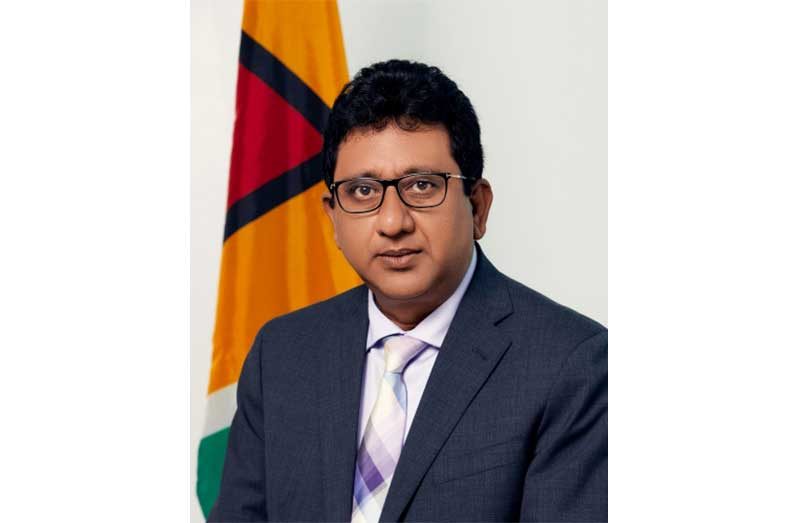–against backdrop of U.S. human rights report
ATTORNEY General and Minister of Legal Affairs, Anil Nandlall, SC, has detailed a series of legislative and administrative reforms that the government has introduced to tackle the persistent issue of overcrowding in Guyana’s prisons. These comments come in the wake of issues outlined in the most recent United States Human Rights Report, which was released in August 2025.
The report highlighted, among other issues, that in Guyana individuals often languish in jail for prolonged periods because of delays in the judicial process. Responding to concerns raised in another section of the media, Nandlall acknowledged the seriousness of the issue, but pointed to concrete steps already taken by the People’s Progressive Party/Civic (PPP/C) administration.
“The issue you have raised is a very serious one and it is a complex issue. It is not a new problem. We’ve had initially for decades, an overcrowded prison system. The government has recognised this issue and has implemented a wide menu of measures to frontally address it,” the Attorney General said. He noted that the government, since taking office in 2020, assumed responsibility for an Inter-American Development Bank (IDB) loan that had been largely dormant under the previous A Partnership for National Unity + Alliance For Change (APNU+AFC) government.
According to him, the loan was about to be cancelled for non-activity.
He added, “Using the proceeds from that loan, we have unfolded a multiplicity of measures, all directed at addressing the issue of overcrowding in the prison system.”
One of the key legislative reforms cited by the Attorney General is the Criminal Law Procedure (Paper Committals) Act 2024, which abolished the decades-old system of preliminary inquiries (PI) and replaced it with paper committals (PC). He stressed that the change is vital to expediting cases. “A lot of people are on remand because their cases are not being disposed of effectively. There is a sloth in preliminary inquiries, and that is recognised throughout the Caribbean and the wider Commonwealth. Countries have moved to abolish PIs. We have gone in that direction. We have amended our laws, passed a new act abolishing PIs, and we now do paper committals.”
He explained that under the PI system, proceedings could last three to four years before an accused person was either discharged or committed to stand trial, during which time those facing serious charges such as murder would remain on remand without bail.
A PC will take only a few months at maximum, he said.
Another reform is the Criminal Procedure (Plea Discussion, Plea Agreement, and Assistance Agreement) Act 2024, which introduces plea bargaining as a way to reduce backlogs.
According to Nandlall, “So, if you get charged today, you can strike a plea deal immediately. If you take a term of imprisonment, it will obviously be a reduced term based on the gravity and type of the offence. You go, you serve that sentence, and you come out back.”
He also pointed to the Bail Act 2022 as another crucial step in preventing unnecessary pre-trial detention. “One of the reasons people are languishing in jail for a long time is because of inconsistent exercise of discretion in the grant of bail,” Nandlall said.
He added: “So, without a Bail Act, that was prevalent. One magistrate would remand for three months or longer, while another would grant bail on similar facts. That inconsistency offends the public and brings a lack of uniformity to the system. It also permits persons to stay in prison for an undue period of time.”
“The Bail Act sets out clearly the principles that must be taken into account by a court when granting or refusing bail, and they are listed. It tells you which offences are bailable and which offences are not bailable. It also deals with how you can challenge a decision where bail is granted or refused. Both sides have a right of challenge,” the AG explained.
Nandlall stated that the government has a whole host of other legislations designed to bring greater speed to the administration of justice.
He reminded that the Constitution enshrines the principle of innocence until proven guilty, stressing that “once the magistrate/judge is satisfied that the person will return for their trial… they ought to grant bail.”
While acknowledging that the U.S. Human Rights Report raises legitimate concerns, Nandlall underscored that the government has not ignored the problem. Instead, he said, successive pieces of legislation and practical interventions are aimed at modernising the justice system and reducing the burden on both prisons and inmates awaiting trial.



.jpg)








